Special report: Rental responds to Covid-19
16 April 2020
In this unprecedented situation, the equipment rental industry is rallying together to overcome the challenges posed by the coronavirus outbreak and support essential services.
With the situation changing so rapidly, it should be noted that this piece has been written on 1 April, 2020.

There is a sense of solidarity, with industry leaders such as Pierre Boels, CEO of Boels Rental and President of the European Rental Association (ERA), saying, “Providing help and service to these crucial pillars of our society is our highest priority.”
Gérard Déprez, Chairman of Loxam, said, “It is our responsibility, and indeed we are very keen, to help out our country in this crisis by offering our teams’ support.”

And in Australia, Kennards Hire’s COO Stuart Dean said, “As a family business, we believe in the power of a supportive community and will continue to support our people, our customers and the industry.”
Associations are also working hard to coordinate efforts and support their members. The European Rental Association (ERA), for instance, has launched an information page on its website, which is regularly updated with the latest developments and advice. Also, its Committee of National Associations has been organising emergency virtual meetings with rental associations across the continent, coordinated by Spanish rental association ASEAMAC.
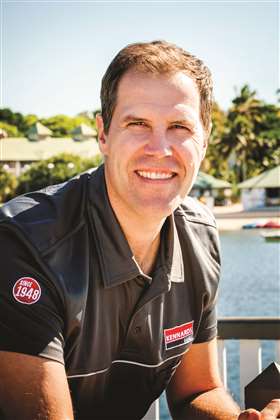
While the economic consequences of the coronavirus outbreak are significant, it is expected that the industry could bounce back quickly. China offers some hope here, as it begins to pull out of the crisis and resumes normal operations.
CHINA
Shanghai Horizon Equipment & Engineering, one of China’s largest rental companies, reported increased activity during March, compared to February, as a result of the improving situation in the country.
Chen Li, Shanghai Horizon’s senior sales manager, industry equipment (MEWPs), said the business was recovering and nearly all branches have reopened, except in Wuhan city, where the virus began, and the surrounding HuBei province. He added that utilisation was now at more than 50% and construction sites were working hard to catch up, following a two-month delay for many projects in the country.
All Shanghai Horizon employees are still required to have their temperature tested when entering the office and to wear face masks.

Beijing-based Shi Yang, Director of Research at Off-Highway Research (OHR) China, says “With the encouraging policies for construction activity, the dealers are more confident and in a better position than businesses in other industries.”
An increase in government investment is now being used as a tool to make up the gap in economic activity suffered since the end of January. A number of new investment plans have been announced at the local level, according to Yang.
“However, we see that central government is trying to balance the need to restore growth with the requirement to minimise the exposure to risk, in the context of a highly leveraged economy,” he says.
Domestic demand is being driven by an acceleration in investment from the low levels in the first two months of the year, but this demand mainly comes from ongoing projects.
China has reported more than 81,500 cases of coronavirus and in excess of 3,300 deaths, but the situation appears to have been brough under control with the number of new cases dropping close to zero.
SOUTH KOREA
South Korean rental company AJ Neworks has been forging ahead, keeping all of its depots open to serve construction sites in the country, the majority of which are continuing to operate.
There have been just a few construction site closures in the cities of Daegu and Pusan due to reported coronavirus infections. While existing construction sites remain open, projects that were scheduled to start recently have been delayed.
AJ Networks says that demand for rental equipment is 15% lower than had previously been expected.
The company has reported no problems with the logistics of moving equipment. Its staff are supplied with masks and hand sanitiser, and access to depots is strictly controlled. When trucks return equipment to the depots they are asked to unload it nearby and then staff use forklift trucks to bring it into the depot.
To date, South Korea has reported almost 10,000 cases of the virus and 169 deaths from the disease.
JAPAN
This year’s Olympic and Paralympic Games, due to be held in Tokyo, Japan, have been postponed to an unconfirmed date in summer 2021 due to the coronavirus outbreak. Aggreko, the company set to provide temporary power for the two events, has entered discussions with the Tokyo Organising Committee of the Olympic and Paralympic Games (TOCOG) following its decision.

The initial value of the contract was approximately $200 million, although it was announced in March that this was expected to rise to around $250 million.
Aggreko’s contract provides a framework for the discussions, but the commercial terms and operational impact surrounding the postponement will need to be worked through in detail.
Japanese rental firm Aktio has reported little disruption to operations, with all depots still open and no effect on logistics. The company said most construction sites in the country remain operational.
Japan has reported almost 2,400 cases of coronavirus to date, with 57 dead.
ITALY
Rental firms have been scaling back in Italy, currently one of the worst affected countries in Europe.
They have been facing large drops in demand for equipment as a result of restrictions imposed by the Italian government to slow the spread of coronavirus.
Providing IRN with an update in mid-March, Marco Prosperi, Director of Italian rental association Assodimi-Assonolo, said companies providing services that support operations that are still open, including construction sites, can themselves remain open – on the condition that they implement stringent protocol to contain the virus.
“The hirers are very good in managing the security protocol,” he says, “They have committed themselves to the disinfection of machines at every exit and return.”
While the majority of rental companies remain open – just 14% have opted for full closure so far – most of those that have remained open have limited their activities, closing some branches and non-main services.
Construction sites have stayed open and, on the whole, are operational, according to Prosperi.
However, he says, “The association representing construction companies has asked for the closure of all construction site activities.”
Assodimi-Assonolo is working to keep its members informed via its website and social media.

Making the best of a bad situation though, Italian rental consultancy and training provider Rental Academy has been offering free webinars to Italian rental companies.
“We are doing this as a way to remain close to the customer during these difficult times and support the industry,” says Pier Angelo Cantù, Director of Rental Academy and its online portal Rental Blog.
The first four webinars were held in March, with more planned for April.
Italy has reported more than 110,500 cases of coronavirus so far, and more than 13,100 deaths.
SPAIN
Jose Blanco, Secretary General of Spanish rental association ASEAMAC, told IRN [on 26 March] that the picture in Spain was very mixed, depending on the type of rental company, the sector it’s working in and the region in which it is operating.
“Anyone related with events received a big hit,” says Blanco, “As most of the season will already be gone when the market bounces back.”
This is the case even for those who are providing services to emergency response efforts such as temporary hospitals, which are demanding things like toilets and modular space.
Since speaking with Blanco, the Spanish government has shut down all construction sites.
ASEAMAC is working to help support its members by providing them with the latest information via a dedicated page on its website.
Spain’s largest rental company, GAM, is serving critical industries and customers such as hospitals, pharmaceutical firms, chemical facilities and food companies during the crisis.
The company’s main depots remain operational but with a reduced number of staff working in shifts. Its equipment delivery infrastructure has so far not been severely impacted.
FRANCE
Europe’s largest rental company, France-based Loxam, has seen a fall in activity in the European countries worst affected by the coronavirus outbreak – France, Italy and Spain – but is turning its focus to supporting priority sectors.
In these regions, the company is now restricting access to most of its depots and head offices.
However, its branches do remain open and have been mobilised to assist sectors such as healthcare and power, as well as construction professionals.
For example, in the French city of Vichy, Loxam’s teams recently installed about ten temporary shelters in less than 24 hours for the deployment of a medical outpost at the town’s hospital.
The company has implemented cost reduction measures across the business. It has stopped its 2020 capex plan and cancelled orders where possible.
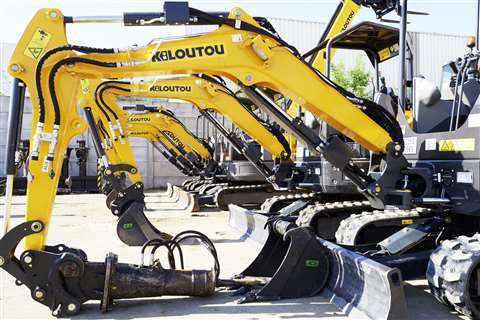
Meanwhile, another France-based rental giant Kiloutou is also supporting critical services.
Although all 444 depots in France have been closed until further notice, along with the majority of its 20 depots in Spain, an exceptional agreement has been arrived at in France for the company to rent and deliver essential equipment for emergencies relating to public health and public utilities, and to fulfil requests from state authorities.
The company’s nine German depots and 34 Polish depots remain open.
In Spain, it is the depots in urban areas that have been closed, with technical and operational centres continuing to provide a limited service.
To date, almost 57,000 infections have been reported in France, and more than 4,000 deaths.
GERMANY

In Germany, Zeppelin Rental’s main country of operation, demand for rental equipment has remained stable and even increased for certain types of equipment as customers try to complete projects more quickly before construction sites are potentially shut down, said Peter Schrader, the company’s Managing Director and COO.
Similarly, in Slovakia, the Czech Republic and Nordic countries, construction is largely uninterrupted, but some work in Austria has been halted.
Zeppelin’s rental depots remain open, and its supply chains and logistics are in good working order.
The company has seen an increase in demand for some equipment types, such as construction site safety, modular space and sanitary systems from public authorities, healthcare and industrial clients.
Almost 78,000 cases of coronavirus have been reported in Germany, with 931 deaths.
UK
MHM Plant in the UK has also put in place measures to maintain an emergency service.
While all its depots are now closed, the company can still be contacted for requirements such as power generation, site lighting and fluid storage.
Although MHM Plant is not guaranteeing a full service, it is still trying to satisfy requests. All staff are working from home but certain employees have access to depots for urgent supplies.
Meanwhile, Vp plc has begun to feel the effects of the coronavirus pandemic, with revenues taking a hit towards the end of March 2020. Although the impact has been limited in Vp plc’s UK businesses, the trend is expected to continue.
This is true not only in the UK but also in Vp plc’s international markets, where government action has limited activity to all but essential business.
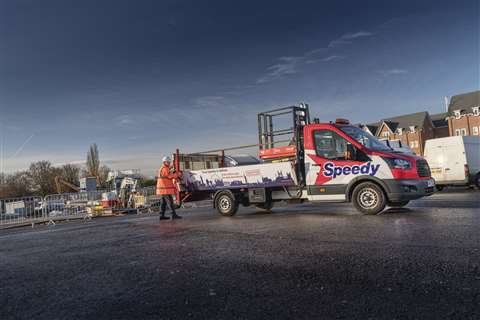
Similarly, Speedy Hire has also felt the pinch of coronavirus, according to a recent trading update.
Activity levels in the market have started to drop, but Speedy’s 200 depots currently remain open and operational. Its central service teams have begun to work from home.
Looking ahead, Speedy said the full impact of the coronavirus will depend on the length and severity of the disruption to activity in the market.
More than 29,400 infections have been reported in the UK to date, and more than 2,300 deaths.
THE NETHERLANDS
So far, demand for equipment has remained relatively stable for Netherlands-based Boels Rental.
“In most branches, our customers remain fully operational for now, which keeps the demand stable,” says Boels.
“But we also see an increase in demand by so-called vital pillars of our society, for example governments, supermarkets, hospitals and other care institutions. They have a strong demand for mobile units, sanitation, power, crowd management and fencing, climate control, and traffic services, etc.”
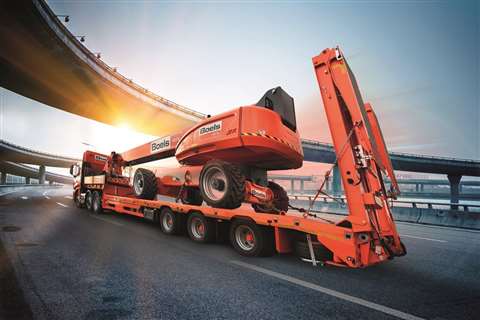
He added, “In the Nordic and Baltic countries and the UK, we haven’t experienced a lot of change in construction so far.”
At the moment, Boels’ depots are operational, delivering services and rental equipment to customers, in line with government guidelines.
The country has so far reported more than 13,600 infections and in excess of 1,170 deaths.
DENMARK
Denmark-based GSV Materieludlejning has adjusted to the coronavirus with a new way of working.
Company CEO Dan Vorsholt said amid the closure of all public amenities, shopping malls, bars and restaurants, construction activity in the country remains relatively strong.
He added, “Soon after the first announcement from the government, we set up a new way to work. We have revolving teams, so team one works in week one, and team two works in week two, and so on.” At the weekend the facilities are not used and are prepared for the following working week, ensuring there is 48 hours before the next team takes over, therefore reducing the risk of infection.
Vorsholt adds, “We have a fairly normal operation in terms of turnover, number of orders, material preparation etc., but it can change from day-to-day.”
At present, over 3,300 coronavirus cases have been reported in Denmark, with 104 deaths.
TURKEY
While there has been an increase in demand for some equipment types, generally the demand for rental equipment across Turkey has fallen, and rental firms are expecting customers to cut contracts short.
However, construction sites in the country remain open and fully functional, and rental companies are keeping their depots open to serve them.
According to IMDER (Turkey Construction Equipment Distributors and Manufacturers Association) and ISDER (Material Handling, Storage and Industrial Equipment Association of Turkey) – which represent rental companies and distributors in Turkey – one example of the type of equipment seeing greater demand is forklift trucks. They are needed by the retail, food and packaging industries.
Delivery times for new equipment were said to have lengthened, especially for companies that import their machines from the EU.
There have been more than 15,600 reported infections in Turkey so far, and 277 deaths.
RUSSIA
According to an article written by the Russian Rental Association, HAACT, the opinions of rental companies in the country are divided as the full effects of the coronavirus crisis are yet to be felt.
For instance, Oleg Malakhovsky, the Managing Director of Rental Tech, was optimistic; “This situation has a beneficial effect on the work of our company, since it has now become clear which non-efficient internal processes need to be optimised.”
Customer demand has so far remained in line with the company’s forecasts.
Meanwhile, the CEO of Vertex, Dmitry Pankin, has a different opinion; “The situation is not straightforward. The difficulty is that we can’t estimate how long the crisis will last. Now we are paying special attention to receivables – many of our clients have decided that it is not necessary to pay for rental services.”
In northern regions of Russia, the construction season has not yet begun, so it is difficult to assess the impact. In general, rental companies have not yet faced a reduction in orders or the closure of sites.
The week of 30 March was declared as non-working, so a decline in demand is possible in the near future, but HAACT expects the market to grow again by September.
Currently, more than 3,500 cases of coronavirus have been reported in Russia, with 30 deaths.
US
The American Rental Association (ARA) has asked for $20 billion in financial aid for the equipment and rental industry to be included in the US government’s Covid-19 financial relief bill.

John McClelland, ARA Vice President of Government Affairs and Chief Economist, said, “Right now, there is an overwhelming need for the federal government to aid all businesses – but, especially small businesses – in the equipment and event rental industry.”
Tony Conant, ARA CEO, said, “Like many industries, the equipment and event rental industry is being severely affected. The shelter in place directives and social distancing recommendations have caused virtually every planned event to be cancelled. These wide sweeping conditions have shuttered many event rental operations and most companies have laid off all staff as we wait on recovery measures.
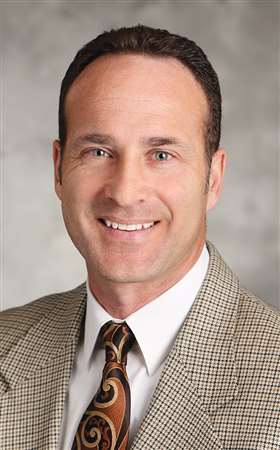
“As states continue to tighten restrictions on business activities, it’s likely that our general tool and construction members will also be negatively impacted.”
United Rentals, the largest rental company in the US and the world, is keeping its depots open for business. The firm has been designated as ‘essential’ since it supplies sectors that are critical to the country’s health, safety, infrastructure and security.
The company is also supporting the special business needs customers may have as a result of the pandemic, including generators, traffic control systems and lighting towers.
Herc Rentals also remains in operation, with its depots still open and staff continuing to work. Considered an ‘essential service’, Herc is conducting its operations in support of critical industries and services during the coronavirus crisis.
Larry Silber, President and CEO of Herc, said, “We are currently responding to hospitals and healthcare facilities with temporary structures, portable power and lighting, climate control and similar equipment.”
The US is currently the worst-affected country in the world, with more than 215,300 infections and in excess of 5,100 deaths reported.
BRAZIL
Brazilian rental association Alec has written a letter to the government stressing the importance of the rental sector in serving hospitals, municipalities and government bodies.
The letter highlighted the fact that they supply essential machines for maintenance, ventilation, hygiene and sterilisation, such as generators and construction equipment for field hospitals.
Brazilian rental company RCB Plataformas has been experiencing a mixed reaction from customers as they come to terms with the crisis.
Marcello Plonski, who is manager of a branch close to Sao Paulo, said the country is already experiencing a slowdown and a number of customers are asking to terminate their contracts and for payment delays. However, he added, “It is a bit of a strange situation because, we have customers who are still demanding and asking for new rentals.”
Brazil has so far reported almost 7,000 cases of coronavirus and 244 deaths.
AUSTRALIA
The Hire and Rental Industry Association Australia (HRIA), Elevating Work Platform Association of Australia (EWPA) and Telescopic Handler Association of Australia (TSHA) are lobbying to get rental services classified as ‘essential’. This will enable them to provide equipment to various government departments, emergency services and essential infrastructure projects during a period of lockdown.
To this end, the associations have been in contact with state and territory Members of Parliament (MPs) as well as federal MPs whose portfolios include emergency services.
From a more operational perspective, they have also been in correspondence with the state and territory Emergency Management Centres who coordinate resources and equipment in times of emergency.
Australia-based Kennards Hire is currently keeping all of its Australian depots open, while a number of its New Zealand branches have been temporarily closed, due to government measures.
Those that remain open in New Zealand are dedicated to supporting essential services.
The company has introduced a new ‘contactless service’ approach, both in branch and with its delivery service, which helps limit physical contact between people. Kennards expects this will also help it to become more agile in its service delivery.
To date, more than 5,100 cases of the virus have been confirmed in Australia, and 25 deaths.
SOUTH AFRICA
Burma Plant Hire in South Africa has closed its Rustdal, Benoni and Kathu depots, following the announcement by the country’s President Cyril Ramaphosa on 26 March that the country was going into lockdown.
With its staff continuing to work remotely from home, Burma Plant Hire remains in operation to provide support to customers operating in essential services to the best of the company’s ability.
To date, more than 1,300 cases of coronavirus have been confirmed in South Africa, and there have been five deaths from the disease.
The wider construction industry
Countries across Europe are imposing drastic measures to prevent the spread of the coronavirus, yet a large number of construction sites remain active.
Questions are being asked about whether construction workers constitute key workers, as there seem to be numerous instances, not only of projects continuing, but of the rules of social distancing being broken.
Currently, Italy, Spain, France, the UK and Belgium are in lockdown, with other major nations, including Germany, Portugal and Austria, imposing severe restrictions on the movements of their respective citizens.
The heads of most governments in Europe have stated that all but essential work must stop. Yet, after the Italian Prime Minister, Giuseppe Conte, called for a full lockdown, France’s President Emmanuel Macron said last week, “We have to continue to produce and to keep the country running.”
Following the UK Prime Minister Boris Johnson’s ‘lockdown’ statement on 23 March, Paul Hamer, CEO of contractor Sir Robert McAlpine, said, “We, like the rest of the UK, are adhering to government guidance and many of our sites and offices are now closed.”
French construction giant Vinci has put a large number of French construction sites on hold, and said it has been talking with public authorities to define conditions under which work can gradually resume.
In Germany, however, the government has allowed public infrastructure projects to continue, in agreement with some of the country’s largest industry associations.
Commenting on Italy, the worst-affected country in Europe, Roberta Prandi, Associate Publisher at KHL’s Power division, said, on 26 March, “The situation, especially in the north, is still very difficult, but the past three days have shown some positive signs as the curve of new positive cases has started to flatten out.”
Many workers have protested that their safety was not being prioritised and the government is coming under pressure to extend its list of non-essential activities.
Meanwhile, Austria’s largest construction group Strabag is gradually resuming work on more than 1,000 construction sites in the country after almost 10 days of suspended activity.
Over in the US, federal guidance is suggesting that US construction could continue. The Associated General Contractors of America (AGC) has urged the Department of Homeland Security (DHS) to declare construction an essential industry.
New guidance has been released making it clear that construction activities are included in the list of essential critical infrastructure works, according to Stephen Sandherr, CEO of AGC.
Equipment suppliers
The coronavirus pandemic has begun to impact Caterpillar’s supply chain, but the manufacturer is continuing to run the majority of its operations in the US and in other parts of the world, where permitted.
Production at some facilities is has been suspended, and there may be further suspensions depending on how the situation develops.
Cat said it was executing business continuity plans, including the use of alternative sources for parts, redirecting orders to other distribution centres, and prioritising the redistribution of the most important parts.
Meanwhile, Komatsu is temporarily closing its manufacturing facilities in Europe, Brazil and India. Its factories in Japan continue to function, as do its Chinese facilities which were fully functional by 17 February.
UK-based manufacturer JCB is suspending UK production until at least the end of April, while continuing to pay affected employees 80% of their salaries.
The firm’s nine manufacturing plants in Staffordshire, Derbyshire and Wrexham closed on 18 March.
A flash survey carried out by CECE (Committee for European Construction Equipment) showed that almost one third of its members are being “significantly affected” by the coronavirus pandemic, with 30% already closing factories.
In China, major manufacturers reopened their factories towards the end of February. However, production was slowed in the first two weeks by a lack of components, transport issues and the absence of some employees.
But Shi Yang of Off-Highway Research China said, “As a general trend, the manufacturers had restored productions to normal levels by the beginning of March.”




